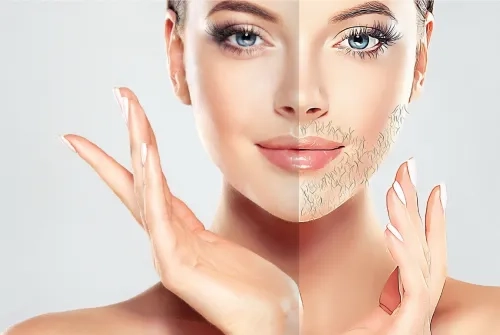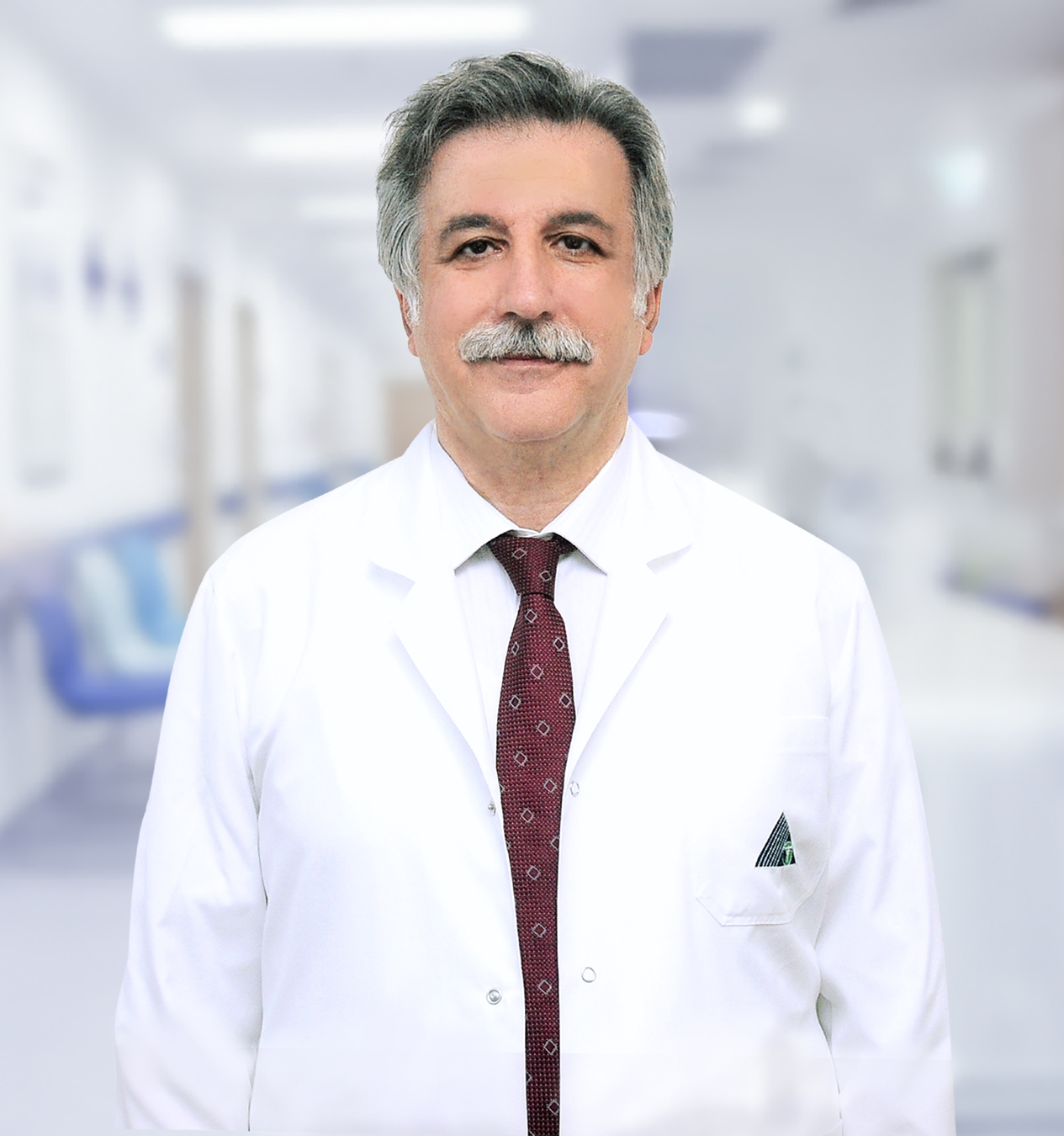Alo Yeditepe
Alo Yeditepe
The Hidden Problem Seen in One out of Every 10 Women: HIRSUTISM
HIRSUTISM, the problem of excessive hair growth in women, can be a symptom of an underlying disease, not a disease. Yeditepe University Hospitals Medical Coordinator, Endocrinology Specialist Prof. Dr. Fahrettin Keleştemur: "Cosmetic measures such as laser hair removal can temporarily remove hair. But what needs to be done first is to reveal if there is an underlying disease of excessive hair growth."
Hirsutism, which is seen in women and young girls, is defined as excessive hair growth in the female body. Stating that they call this male-type "Excess Hair Removal in Women", Prof. Dr. Fahrettin Keleştemur made important statements on the subject.
Emphasizing that 10 out of every 100 women have excessive hair growth problems in the period called reproductive age, which starts with menstruation and continues until menopause, Yeditepe University Hospitals Endocrinologist Prof. Dr. Fahrettin Keleştemur: “Women are diagnosed with hirsutism if there is more than normal hair growth in the jaw area, upper mustache area, upper arm area, back area, lower waist area, upper abdomen area, chest, lower abdomen and thigh areas.”
"There May be Diseases Hidden by Hirsutism"
Noting that excessive hair growth is most common between the ages of 15-16 and 45-50, Prof. Dr. Fahrettin Keleştemur: "This is a problem that bothers women. Many women do not express this problem very much and consult a doctor. They try to get rid of hair by applying to aestheticians or cosmetic centers. However, the important point is that excessive hair growth is not a disease but a symptom of an underlying disease. If a woman has this disorder, the cause that causes it must be revealed. Without understanding what the underlying cause is, proper treatment is not possible. The disease should be detected without causing a loss of time.”
"The Most Common Cause of Hirsutism: Polycystic Ovary Syndrome"
Stating that one of the most common causes of excessive hair growth is polycystic ovary syndrome, Prof. Dr. Fahrettin Keleştemur: "The reason for hair removal is polycystic ovary syndrome in 70 percent. It is the most common endocrine disorder in women of reproductive age. In women, in addition to excessive hair growth, it can also cause menstrual irregularity, acne formation, and hair loss. To diagnose polycystic ovary syndrome, ultrasound-guided ovaries are examined, and the presence of enlarged ovaries and widely distributed small cysts in ultrasonography is one of the criteria. Polycystic ovary syndrome is also the most common cause of infertility in women. Most of these patients are overweight patients. Body mass indexes are high. Fat metabolism disorders are common in these patients. Diabetes is at least 5 times more common in these patients. Therefore, the problem of hair removal should be cared about.
“The Cause of Hirsutism May be a Tumor (Rarely) or a Genetic Disease”
Although rarely, adrenal gland and ovarian tumors also cause complaints such as excessive hair growth and hair loss as they cause excessive secretion of androgen hormones. Prof. Dr. Fahrettin Keleştemur continued as follows: “In these cases, hair growth starts suddenly and progresses rapidly.
The genetic disease that concerns the adrenal gland, called Congenital Adrenal Hyperplasia, is caused by disorders in the synthesis of steroid hormones in the adrenal gland. In this disease, findings such as male hair loss, acne, and increased muscle mass can be seen, and in severe cases, voice thickening, and enlargement of the clitoris can be seen. Genetic analyses may be required in addition to hormonal tests.
Apart from these diseases, there is no specific cause for excessive hair growth in some patients. This condition is defined as idiopathic hirsutism in patients with excessive hair growth despite normal androgen levels, no polycystic ovaries detected on ovarian ultrasonography, and no menstrual irregularities.
“Multidisciplinary Treatment is Required”
Pointing out that excessive hair removal treatment is a problem that should be evaluated together by different branches, Yeditepe University Hospitals Endocrinology Specialist Prof. Dr. Fahrettin Keleştemur listed the points to be considered in the treatment as follows: "There must be an endocrinologist on the team. These patients may have endocrine abnormalities such as insulin resistance or obesity. In addition, a dermatologist, a gynecologist dealing with reproductive endocrinology, radiologist must be included in the team. It is also beneficial to have a dietitian and, if possible, a therapist experienced in behavioral therapy for the treatment of patients with obesity problems. All this makes up a multidisciplinary team. For patients who apply to Yeditepe University Hirsutism Center, the focus is primarily on finding the underlying cause of the problem of excessive hair growth as a team.
Drug treatment is used in polycystic ovary syndrome and hirsutism with unknown cause, which is mostly seen in people who apply with complaints of excessive hair growth. In addition to regular drug use for at least 6 months, cosmetic treatment can also be applied if necessary. It should not be forgotten that excessive hair growth treatment does not have a permanent treatment method, chronic treatment may be necessary, and drugs can only work within months. It is also very important to continue regular physician controls during this time.''
Lifestyle Changes are Also Required
Drawing attention to the importance of lifestyle changes in the treatment of hirsutism, Prof. Dr. Fahrettin Keleştemur: “Regardless of the underlying cause, proper diet, and regular exercise, especially in patients with obesity, have positive effects on excessive hair growth. If genetic abnormalities are identified as the cause of excessive bristling, patients should also receive genetic counseling.”
Press Coverage: hurriyetaile.com | ntv.com | sozcu.com | haberturk.com | mynet.com
About
Faculty and Year of Graduation:
Hacettepe University Faculty of Medicine, 1979
”
See Also
- What is Hypoglycemia?
- Did You Know That Our Bodies are Managed by Hormones?
- Misconceptions About Hypertension
- What is Hypertension?
- Chronic Pelvic Pain
- What is Polycystic Ovary Syndrome/PCOS?
- Persistent Headache May Be a Sign of Tumor
- The Purpose of Pituitary Diseases is to Avoid Waste of Time with the Right Treatment
- Pelvic Floor Muscles Should Be Addressed with a Multidisciplinary Approach
- Protect Children From Sports That Will Knock Their Head
- Polycystic Ovary Syndrome Can Occur If the Bacteria in the Gut Are Not Functioning Well
- Doctor Support for the Ban on Heading by Children
- Head Trauma Can Cause Permanent Damage
- Diabetes Mellitus and its Treatment
- Treatment of Pituitary Adenomas
- Surgical Treatment of Pituitary Diseases
- Pituitary Clinic | FAQs
- What are Pituitary Diseases?
- What is the Pituitary Gland, What are its Functions?
- What is Hirsutism?
- Hirsutism Clinic / FAQs
- Treatment Success in Brain Tumors Also Depends on the Family
Alo Yeditepe






